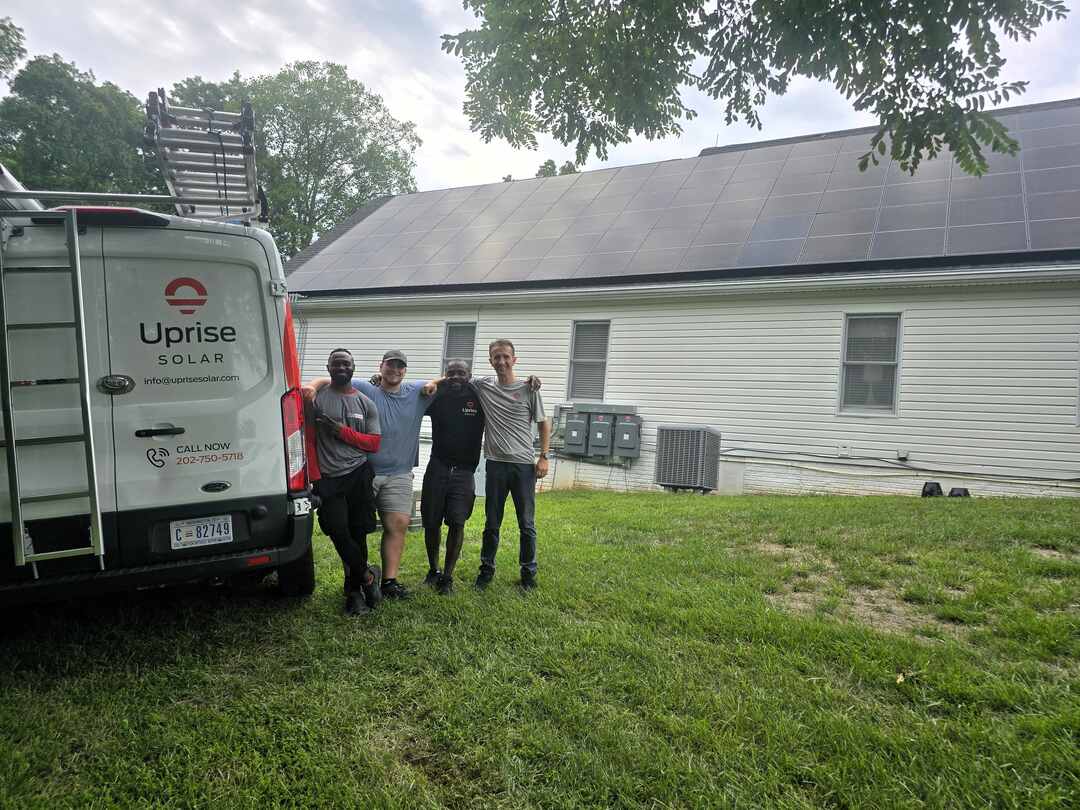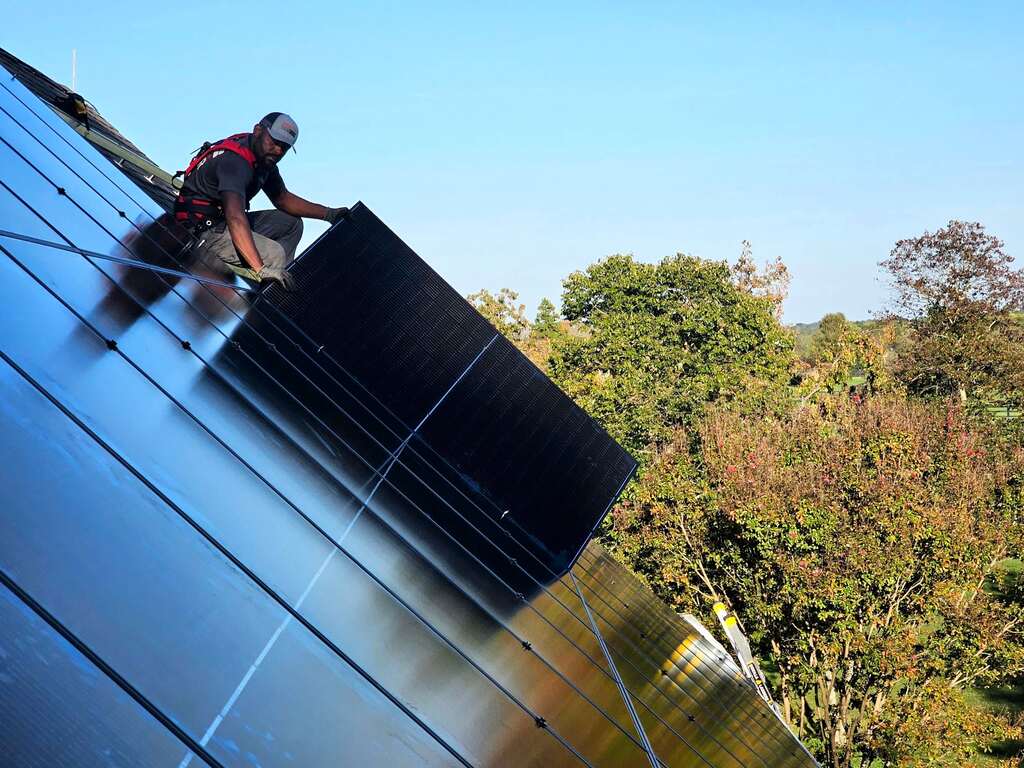The utility of solar energy depends on multiple factors such as location and climate. Things are looking sunny for solar in Virginia, which has been seeing a steady increase in solar adoption. Recent survey data indicates a double-digit rate of solar installations in the state just this year. If you’re thinking about going solar, it’s helpful to understand solar efficiency in Virginia, so you can see why the state is such a good fit for this type of clean energy.

What Is Solar Efficiency?
To understand solar efficiency in Virginia, you must first know what solar efficiency is. Solar efficiency measures how much solar energy a panel can generate from the sun’s radiation. Solar efficiency is measured in the percentage of radiation from the sun that the panel can convert into energy. Currently, around 20% is a reasonable expectation, with the most effective panels boasting 22.8% efficiency. However, scientists continue to work on solar panel efficiency; in the lab they’ve hit numbers like 47.1%.
Highly solar-efficient locations will place fewer demands on the energy grid because they are especially suitable for producing solar power.
Is Virginia a Solar-Efficient Location?
Yes! One of the reasons solar energy has become so popular in Virginia is that the state has weather patterns that favor solar production. Unlike further south, Virginia is not impacted as often by hurricanes, while states further west struggle with the cloud cover from frequent thunderstorms and even tornadoes. With cities across Virginia seeing more than 200 sunny days yearly, the weather is excellent for solar efficiency.
How Virginia Is Benefitting From Solar Investments
Solar energy not only brings more efficient energy sources to the state, but also increases power resilience, among many other benefits. Some of these include:
Natural preservation
When less space is taken up by utility companies and power plants, nature can flourish. The state retains more green space, which is advantageous to the many plants, animals, and insects that live there and support local ecosystems. And trees, which do their part to fight climate change by producing oxygen and removing carbon dioxide, can thrive.
Reduced emissions
Solar panels are responsible for around 20 times less greenhouse gas production than coal sources, and about 12 times less than natural gas. Virginia’s air quality can improve with solar, while the state reduces its contribution to global climate change.
Less grid impact
When solar energy powers homes, homeowners are less reliant on the grid, resulting in less strain on grid infrastructure. When there’s less strain on the grid, utility companies don’t have to build as much new transmission infrastructure — and pass those costs on to homeowners.
Energy independence
Since homeowners with solar power don’t have to rely as much on grid-supplied electricity, they can achieve greater energy independence. Homeowners can even draw on alternatives (such as batteries) to keep the lights on during outages. On a broader scale, energy independence benefits the environment and reduces the nation’s exposure to supply disruptions.
Higher property value
Solar panels are an excellent investment. They reduce electric bills and can even protect a roof from damage. As a result, prospective buyers are often excited to see panels on a home. In fact, a home’s sale value increases by around 4% simply due to installing a solar array.

Invest in Solar for Your Virginia Home or Business
Whether you’re still considering solar or are ready to take the plunge, be sure to get your questions answered by installers with years of experience working in the DMV.
The team here at Uprise can help you understand how your property is suited for solar energy and what impact those panels will have on your bills. Contact Uprise Solar today to schedule a conversation and receive a customized quote!
